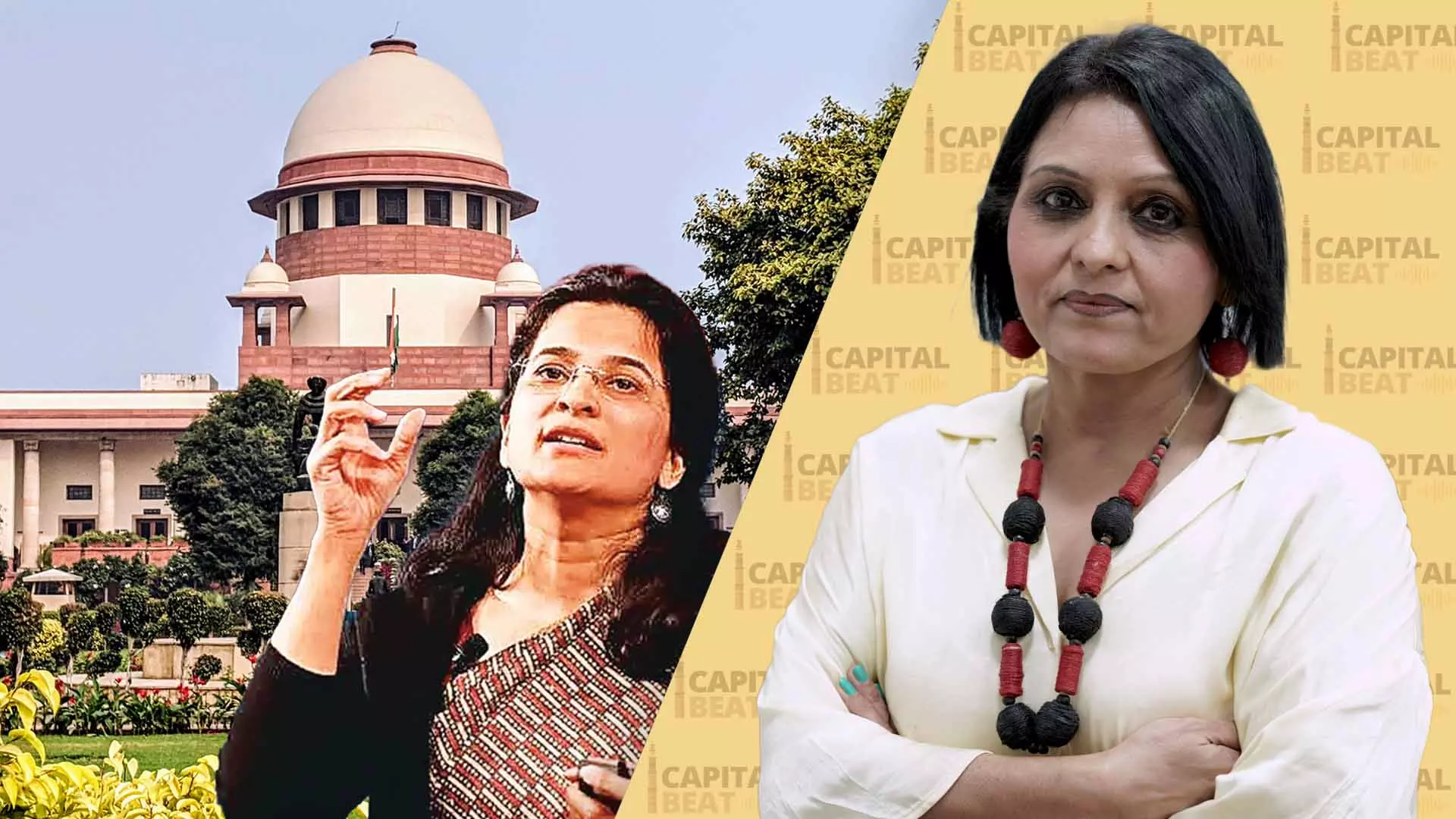
Anjali Bhardwaj interview
Is EC lying on SIR? | Activist Anjali Bhardwaj interview
ECI admits no record of study behind nationwide Special Intensive Revision, triggering questions on transparency and credibility of the electoral roll reform proces

As the debate over the Special Intensive Revision (SIR) of electoral rolls intensifies, questions are being raised about the Election Commission of India’s (ECI) refusal to disclose key documents related to the exercise. In this episode of Capital Beat, transparency activist Anjali Bhardwaj speaks to Neelu Vyas about her Right to Information (RTI) applications, the Commission’s responses, and the implications for democracy.
You filed two RTIs seeking records on the SIR. What were you asking for and what response did you receive?
I filed one RTI asking for a copy of any independent appraisal or study on the basis of which the Election Commission decided to initiate the SIR across the country. I also asked for related files, notings and correspondence.
In response, the ECI only shared the June 24, 2025 order announcing the SIR and claimed it was “self-explanatory.” They added that no further information existed in their records.
In my second RTI, I asked for the order and guidelines of the 2003 intensive revision in Bihar. Instead of providing those, the Commission once again gave me the 2025 order. This is shocking, because in its affidavit to the Supreme Court, the ECI itself said the SIR was based on an independent appraisal. Yet when asked under RTI, it denies having any files.
Also Read: Why BJP ire against CSDS for anti-SIR protest in Bihar is ironic
Why are the 2003 guidelines so important in this debate?
The Election Commission has claimed that anyone enrolled in the 2003 electoral rolls will not need to provide fresh proof of eligibility, since their citizenship and eligibility were verified during that revision.
If that is true, then the Commission must show the guidelines and orders of 2003 which prescribed the process and documents used. Without those records, how can anyone believe such verification was ever carried out?
By refusing to provide them, the ECI is fuelling suspicion that its claim about 2003 checks is misleading.
Does this mean the SIR is arbitrary, without any study or appraisal backing it?
That is exactly the concern. The Commission’s public information officer is saying no files exist. This either means the ECI is lying, or that such a mammoth decision was taken without any deliberation or record-keeping.
Both possibilities are deeply troubling. A constitutional body cannot claim to act without files, notes or studies. This reeks of arbitrariness and undermines trust in the institution.
Beyond the SIR, your RTIs highlight a broader issue—the right to information. What does the denial mean for citizens?
The Supreme Court has consistently upheld citizens’ right to know, from the S.P. Gupta case to the electoral bonds verdict. Yet the ECI, a constitutional body, is denying even basic records.
When I filed RTIs on electoral bonds, files were provided. But here, the Commission is flatly refusing. This shows a clear violation of the Right to Information Act and democratic accountability. If public authorities can simply say “no files exist,” where does this stop?
Do you see this RTI response as evidence for the Supreme Court to intervene?
Yes. The petitions before the Supreme Court already pointed out that the SIR was announced in secrecy, with no consultation or adequate reasons given. Now, through the RTI replies, the ECI is effectively admitting it has no record of why or how the SIR was initiated.
This strengthens the argument that the exercise is arbitrary and opaque. I do hope the Supreme Court takes cognizance of this, especially since the next hearing is in early September.
Some activists say the SIR resembles an NRC through the back door. Do you agree?
That suspicion is growing. The ECI insists this is not NRC, claiming similar checks were done in 2003. But when asked to produce the 2003 guidelines, they refuse.
If the Commission had proactively published those records, this controversy could have been settled. Instead, by hiding information, they are confirming fears that the public is being misled.
Finally, what do you expect from the Supreme Court in the coming hearings?
I hope the court will hold the Election Commission accountable. If the Commission cannot produce the appraisal or the 2003 records, it shows the SIR is baseless. The court has already recognized the lack of transparency in this exercise.
It is possible the court could order the SIR to be halted. At the very least, the ECI must be directed to work within the bounds of the Constitution and provide information to citizens.
On our part, we will also move first and second appeals under the RTI framework to challenge this denial.
The content above has been generated using a fine-tuned AI model. To ensure accuracy, quality, and editorial integrity, we employ a Human-In-The-Loop (HITL) process. While AI assists in creating the initial draft, our experienced editorial team carefully reviews, edits, and refines the content before publication. At The Federal, we combine the efficiency of AI with the expertise of human editors to deliver reliable and insightful journalism.

